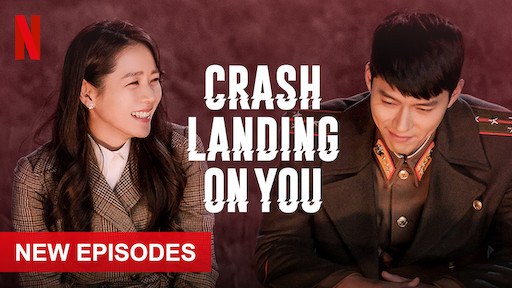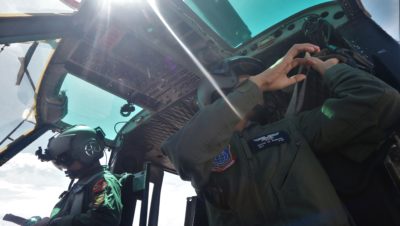The Korean TV series, ‘Crash Landing on You’ (CLOY) released recently has so taken many K- drama fans around the world, including a dried-eyed, been-there-done-that me.

I don’t usually watch contemporary K-drama preferring period films because of their historicity, therefore well-researched material and fabulous native attire and scenic spots.
The well-researched period films are, to me, superior over the contemporary flicks. I can only count on my fingers what contemporary K dramas I have watched because I felt that they are for younger audiences.
But, all that noise over social media made me watch the first episodes of ‘Crash Landing on You’ and became intrigued with its main plot, judicious cuts and complex characters with various desires.
No, not for the kilig moments or romantic scenes which are to me, run-of-the-mill. Nothing really happens and the lovers kiss only during Series 1 Episode 7, I think. But, give it to the Koreans and their exercise on restraint over physical contact between lovers which points to the fact that they have found the success formula for films that have become popular, admired, and respected around the world (example: the movie Parasite winning Best Picture and Best Director at the Oscars!).
But my fingers are always on the Remote at the ready to press Fast Forward for what I think is cloying, obvious, and expository lines. Actually, I’ve practiced quick readings of these two-liners at the same time, paying attention to the drama and color unfolding onscreen.
Over the romantic intent of the TV series ‘Crash Landing on You’ is the serious import of its theme: the desire, it seems, of all Koreans for the reunification of North and South. If this theme was used by many writers including Margaret Mitchell in “Gone With the Wind”, unification is not easy.
This reunification theme in CLOY shows that in order for it to be successful, it has to be hard fought and must be the desire of both parties. Such is well-exploited here symbolized by the lovers who are physically separated only to be reunited to give the entire product a hopeful ending, putting forward in a subtle way its theme for one Korea in the future.
It is this smart attitude or purpose and their being attuned to the times by Korean filmmakers and the Korean government to use film to put across its message of reunification, after all, they are descendants of hero of the North, Jumong and his wives, one of them Soseono, who was said to have founded the Southern part of Korea.
Koreans belong to one race separated by politics and war (an Uncle fought there). But, the desire and longing for this union are symbolized by the love between Captain Ri Jeong Hyeol played by the tall and dashing Hyun Bin, and the lovely Son Ye Jin as Yoon Se-ri.
The TV series therefore is a learning experience of Korea’s present realities and her diverse cultures. On the other hand, excellent scenes show macho men shedding tears openly humanizing them, strong, independent women figure prominently, and how they, rich and poor can be supportive of each other – the communal, ‘bayanihan’ spirit manifesting at these convergence areas: the laundry area, the making of kimchi and the gathering of village women at the house of a Colonel and his wife, sharing salacious gossip or village events over food, fashion or whatever they fancy.
Intriguing scenes are about the hierarchies and influences of military officials, the bribery among them and among civilians, the very Asian and also Filipino ‘utang na loob’, the fashion sense of the lead actors, the often unsuccessful displays of individualism by certain characters, the comparisons of the lifestyles between the North — its surprise house inspections, frequent brown outs and its consequences, in contrast to the Southern lifestyle with its ‘capitalistic’ conveniences (clap your hands — power is put off or power returns), its tall, brightly-lit buildings and advanced technology – perhaps, a utopia the Northerners can only dream of at present.
Made light of in the series is the interrogations of the South’s National Internal Security over the North’s soldiers on a mission in Seoul but, the violent encounters on the highway or at the parking lot are realistic enough for us to cringe in our seats.
The divide between North and South is best shown in overhead shots and close ups during a switch of persons on a highway marked by a wide yellow line, suggesting that back channelings seem to continue over prisoner swaps between the divided nations.
This scene becomes tense as well when Se-ri and Jeong Hyeol had a dramatic reunion before the latter, along with the members of Company Five board a bus back to the North. Briefly, the equal capabilities of both forces was shown when North and South soldiers were quick on the draw.
The bias against the Northerners by Southerners and vice versa may not be overly-emphasized because of that noble aspiration of reunification and its message pushed in the TV series resulting to tensions in their contrasts: in the North, the top brass can slap and kick around an erring subordinate but in the South, the security agents are shown to be understanding and benevolent, hence belying the rumors of torture that circulate about them up North.
This is one more educational TV series that comes through as mature yet funny especially the soldiers of the Captain’s Company Five enveloped by the romance between two lovers of contrasting backgrounds brought together, they say, by destiny.
comments are temporarily disabled.












